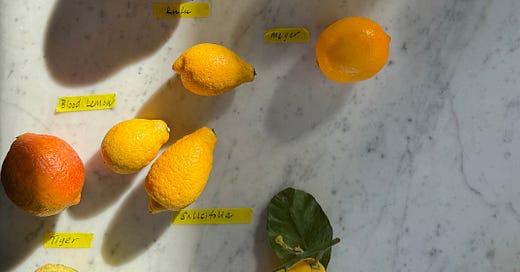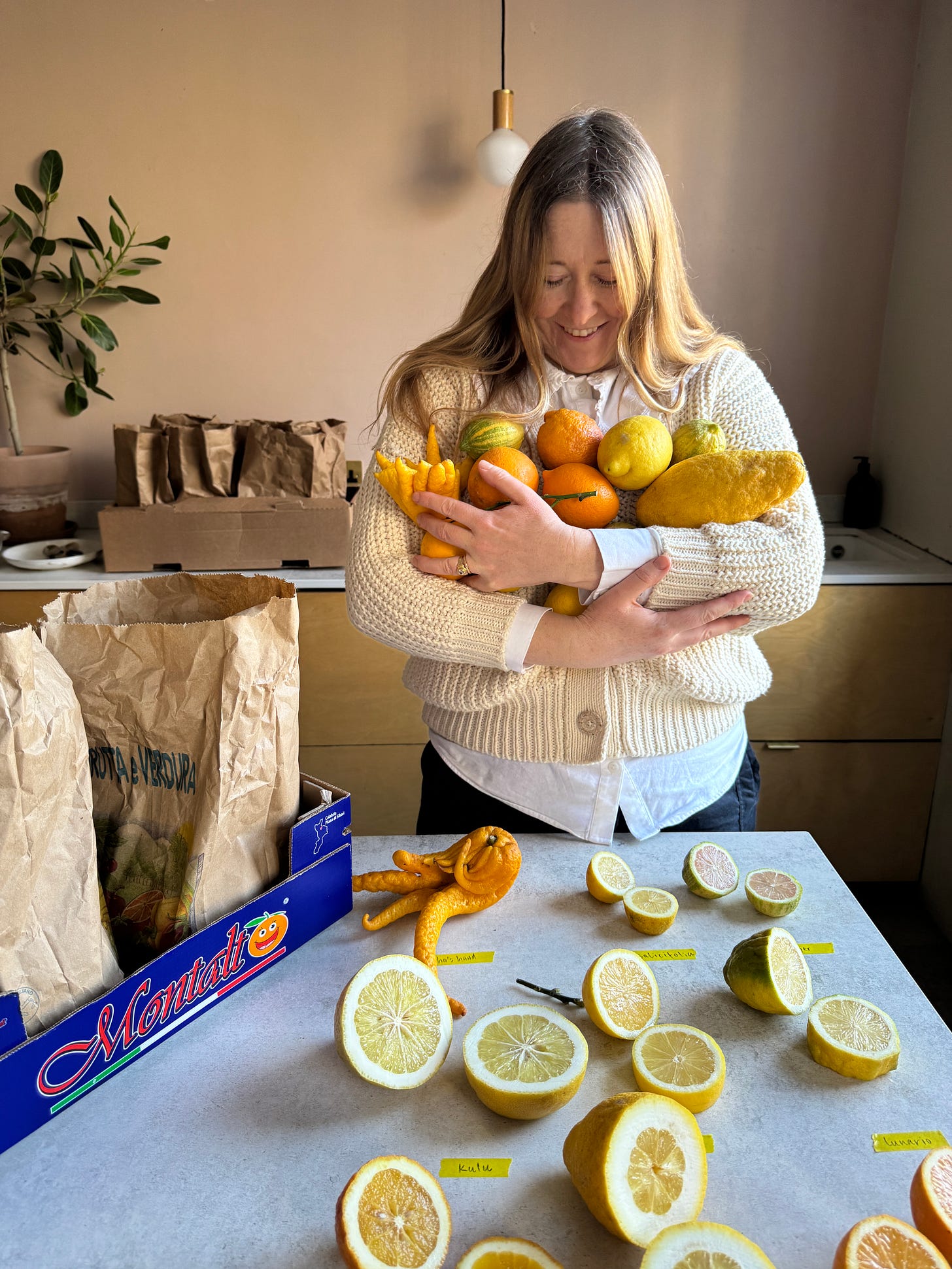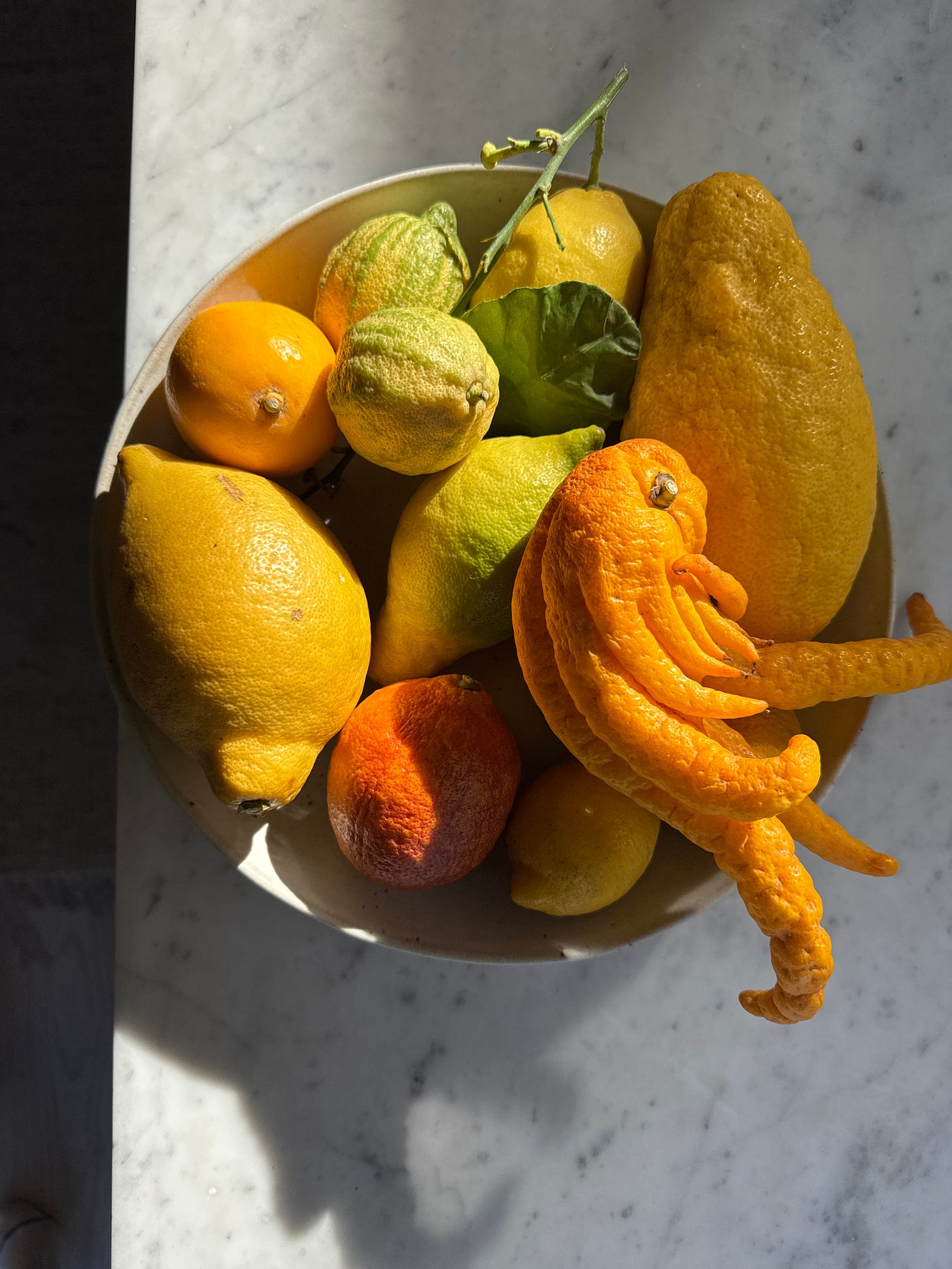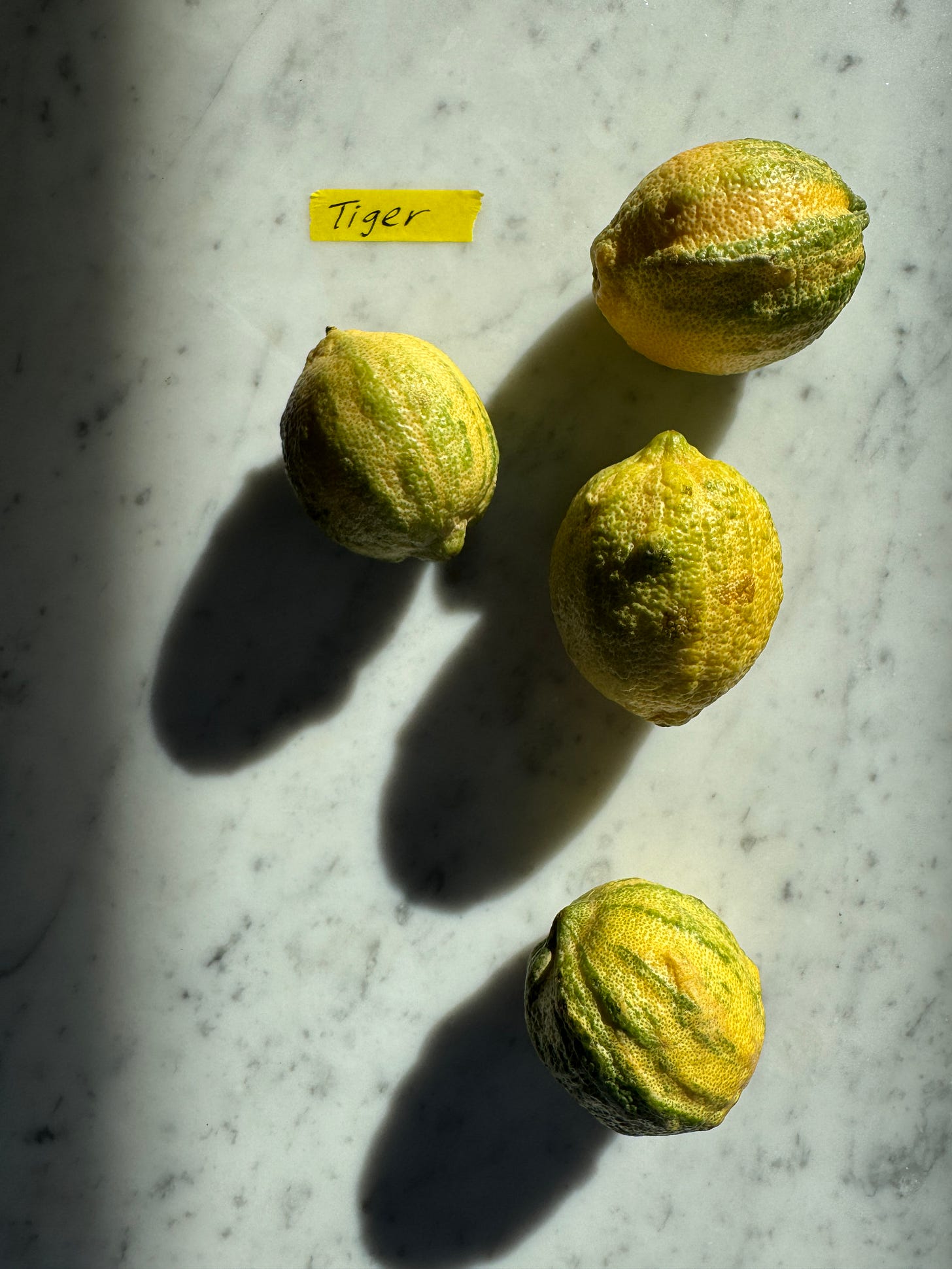Hi, I’m Anna Jones and welcome to my newsletter, a celebration of cooking, vegetables and life. It’s great to have you here. If you have found yourself here but are not yet subscribed then you can sort that out below….
My cookbooks (there are five) are available here. The latest is Easy Wins, a Sunday Times bestseller. There are also hundreds of free recipes on my website which you can find here.
I think it started with pancakes, loading equal amounts of lemon and sugar onto thin freckled crepes. Jif lemon from a bottle poured on top of shimmery piles of granulated sugar that softened and melted as the acid hit.
There were lemons around too but the bottles of Jif lemon juice in the cupboard were what we used most, and I loved it. An always-ready-to-go hit of sourness.
I used bottled lemon to make lemon drizzle cake (which I will defend to the death as the best cake) and to make lemonade to sell in cups on the road with my sister. For balance, we also ate a lot of mini Mars bars and I was obsessed with boxes of micro chips, it was the 80’s.
When I saw my first box of Amalfi lemons as a chef, things changed. These lemons felt special. Like an ingredient in their own right, not just something to squeeze on stuff. Something precious, prized - so sherberty and fresh that it felt very important to use the juice and the zest - nose-to-tail lemon.
And while most of the lemons I cook with (and I imagine the lemons you cook with) are just run-of-the-mill lemons, this box of fat, truly lemon yellow Amalfi’s changed how I think about them, and so changed how I cook.
I’ve talked a lot about how I use lemon, as a third seasoning, as much as I use salt and in fact much more than I use black pepper. In my last book Lemons are the opening chapter, one day soon I will write a book about lemons but until then I stand by these words in Easy Wins…
“Lemons are a third seasoning in my cooking. So often when a dish is lacking something, lemon will complete it. Once I have tasted for salt, my next thought is lemon – juice added at the end of cooking for a lift, or zest for zing. Like salt, adding lemon helps food taste more like itself.
You can harness so many different flavours from a lemon: the sharp, refreshing acidity from juice; the brightening sherbet of fresh zest; the rounded lift of a roasted lemon, with its sharp but caramelised notes. And then there’s the preserved lemon, which brings something altogether different to the table, salty, tangy, full.”
Off topic lemon anecdote - just after my first book came out there was a blog that cooked all of my recipes without the lemon, written by someone who did not like lemon as much as me. I can’t find it anymore. I wish I could.
So today while we are still in lemon season (in Europe) I wanted to dive into lemons, mainly as a personal excuse for me to order as many lemon varieties as I could get my hands on but also to talk about this ingredient I love in a richer way than we usually do.
I would forgive you for thinking a lemon is just a lemon. I think most people would struggle to name even one variety. Our supermarkets sell mostly Eureka or Lisbon lemons but there are so many other varieties with so many different flavour notes. The way the food industry works right now takes away variety and nuance. Things are signposted ‘lemon’ or ‘apple’ so we literally don’t know that there are even different varieties. Most shops don’t even list (and I’ve looked) the variety of lemon they are selling. The way our food is farmed values sameness, repeatability and homogeneity.
So I think it’s important to talk about this, for the love of lemons but also as an example of something bigger. To share all these different lemon varieties so you know they exist and can seek them out. Google tells me that there are 30 types of lemons, I have feeling it’s more as one supplier I use (more on them below) Shrub had 19.
I’m not expecting you to go out and buy all these niche lemons (though if you do we’d be friends) but I’m hoping that talking about them might inspire you to cook more with lemon, and to think about all the food you buy differently, as each fruit or vegetable as one variety of a family of that fruit of vegetable, the one or two varieties of say a lemon or an orange thats been chosen by our supermarkets and in turn becomes the one that gets to be our version of a lemon. The supermarkets have decided for you what a lemon is. I want you to be able to decide for yourself.
So below are my tasting notes on lemons, and recipes for what I think is the best way to use each one.
This is for the people who support my recipes and writing with a paid subscription, if you are not a paid subscriber then please find some of my free lemon recipes here.
Keep reading with a 7-day free trial
Subscribe to The Anna Jones Newsletter to keep reading this post and get 7 days of free access to the full post archives.








